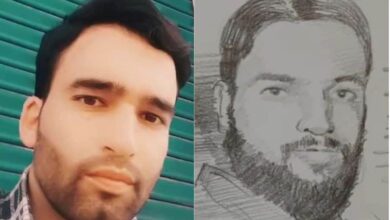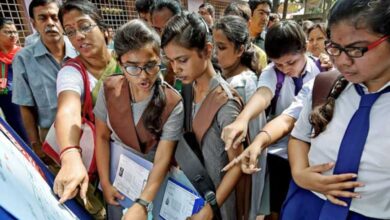Knowledge nugget of the day: Savitribai Phule
Take a look at the essential concepts, terms, quotes, or phenomena every day and brush up your knowledge. Here’s your knowledge nugget for today.
(Relevance: Social-cultural reform movements form an important part of the UPSC syllabus. Several questions have been asked by UPSC on important social reformers. In this regard, Savitribai Phule forms an integral part of the syllabus.)
January 3 marks the birthday of the ‘mother of Indian feminism’ Savitribai Phule (born in 1831), who is regarded as a social reformer, a Dalit icon, an educationist, and a poetess. She was the eldest daughter of Khandoji Neveshe Patil who belonged to a Mali community. In 1840, when child marriages were common, 10-year-old Savitri was married to Jyotirao, who was 13 years old at the time.
Key Takeaways:
1. Savitribai Phule’s education started after her marriage. Her husband, Jyotirao Phule, is said to have educated her at home. Later, Jyotirao admitted Savitribai to a teachers’ training institution in Pune.
2. At a time when it was considered unacceptable for women even to attain education, the couple went on to open a school for girls in Bhidewada, Pune, in 1848. This became the country’s first girls’ school.
3. The Phules opened more such schools for girls, Shudras, and Ati-Shudras (the backward castes and Dalits, respectively) in Pune, leading to discontent among Indian nationalists like Bal Gangadhar Tilak. The opposition to the couple was so hostile that eventually Jyotirao’s father Govindrao was forced to kick them out of his house.
4. Undeterred, Savitribai went on to establish 18 schools, including for marginalised castes, along with her husband. Apart from this, the couple also opened a centre called Balhatya Pratibandhak Griha (Home for the Prevention of Infanticide) to cater to pregnant widows and sexual assault survivors so that they could safely deliver their children. By 1884, 35 Brahman widows had come to them from different places where Savitribai would herself help in the delivery of their children and take care of them,” writes author and scholar Hari Narke in the Savitribai Phule First Memorial Lecture, NCERT (2008).
5. Savitribai was an organic intellectual and a critical pedagogue who epitomised the emancipatory value of education for women. Her pedagogy was centred on building an “epistemic community” of women that aimed to liberate them from the clutches of caste and patriarchy. She used the pedagogy of questioning. This is evident in her poems reflecting on how confining women to motherhood, household and grahasth jeevan (domestic life) can be inimical to achieving their full potential.
To live with dignity, go to school/ Education is the true ornament of human beings…your first priority is to study/ After school it is play, household chores should be done after the first two.
— Savitribai Phule in her poem Samuh samvad
6. She would often face men of a conservative mindset, who would purposely lurk around to pass lewd comments and pelt her with stones or cow dung. “She started to carry an extra sari with herself to school. She would change into the spare in school, teach the girls for the day, and then change back into the soiled one, before returning home. This did not deter Savitribai from her far-sighted objective to popularise female education,” said Shraddha Kumbhojkar, Head of the History Department, Savitribai Phule Pune University.
7. Savitribai Phule also advocated inter-caste marriages, widow remarriage, and eradication of child marriage, sati, and dowry systems, among other social issues. The Phules also adopted Yashwantrao, the child of a widow, whom they educated to become a doctor.
8. The Satyashodhak Samaj (The Truth-Seeker’s Society) was established on September 24, 1873 by Jyotirao-Savitribai and other like-minded people. Savitribai was an extremely dedicated and passionate activist of the Samaj. It advocated social changes that went against prevalent traditions, including less expensive weddings, inter-caste marriages, eradication of child marriage and widow remarriage.
9. During the 1877 famine, Savitribai offered her services to the people by setting up 52 anna chattra (food camps), especially for children. “Education gave her clarity and taught her to take firm stands. She looked after the food camp in Dhankawadi, where on an average over 2,000 bhakris (jowar bread) were made every day,” said Deshpande.
 Jyotirao Phule and Savitribai Phule
Jyotirao Phule and Savitribai Phule
10. Jytoirao passed away in 1890 and in defiance of all social customs, Savitribai led the last rites of her husband. When the 1897 Bubonic plague hit Poona, Savitri and Yashwantrao were involved in the relief work. She caught the disease in the process and passed away on March 10, 1897.
11. In March 1998, Indian Postal Services issued a stamp in Savitribai Phule’s honour and 17 years later, the University of Pune was renamed Savitribai Phule Pune University.
BEYOND THE NUGGET: Fatima Sheikh
 he only available photo of Fatima Sheikh is with Savitribai Phule and two of their students.
he only available photo of Fatima Sheikh is with Savitribai Phule and two of their students.
1. Fatima Sheikh, often a lost figure in Indian history, was a pioneering teacher, anti-caste activist, proponent of girls’ education, and social reformer in 19th century Maharashtra. Along with Savitribai and Jyotirao Phule, she started the first girls’ school in the country, in spite of loud, threatening opposition.
2. Fatima Sheikh befriended Savitribai when the two were enrolled in a teachers’ training programme by American missionary Cynthia Farrar. While in the programme, both developed a bond over their politics and mission to educate those who had been traditionally denied knowledge and education.
3. In 1848, Savitribai, Fatima, and Jyotirao opened the first school for girls inside the premises of Fatima’s home in Pune. Savitribai and Fatima took on the work of teaching a small group of girls there, with the help of Farrar, who at the time was based in Ahmednagar. Other schools for Dalits and women followed, with Fatima and Savitribai going to individual families across the town in attempts to persuade them to enroll their children.
4. Unfortunately, many details of Fatima Sheikh’s life and pioneering work have been lost. Unlike the Phules, who left behind a treasure trove of literature in the form of personal diaries, notes, letters, poems and books, no surviving documents of Fatima Sheikh are available today.
5. In 2022, Google Doodle commemorated her birth anniversary stating, “Fatima Sheikh was born on this day in 1831 in Pune, India. She lived with her brother Usman, and the siblings opened their home to the Phules after the couple was evicted for attempting to educate people in ‘lower’ castes. The Indigenous Library (Bhide Wada girls school) opened under the Sheikhs’ roof.”
(Source: The legacy of Savitribai and Jyotirao Phule, Why Savitribai Phule matters for women struggling at universities, Savitribai Phule, India’s first woman teacher, Who was Fatima Sheikh, The forgotten story of Fatima Sheikh )
For your answers, queries and suggestions write at khushboo.kumari@indianexpress.com
🚨 The Indian Express UPSC Essentials brings to you the December issue of its monthly magazine. Click Here to read. Share your views and suggestions in the comment box or at manas.srivastava@indianexpress.com🚨
Subscribe to our UPSC newsletter. Stay updated with the latest UPSC articles by joining our Telegram channel – IndianExpress UPSC Hub, and follow us on Instagram and X.
Discover the Benefits of Our Subscription!
Stay informed with access to our award-winning journalism.
Avoid misinformation with trusted, accurate reporting.
Make smarter decisions with insights that matter.
Choose your subscription package






